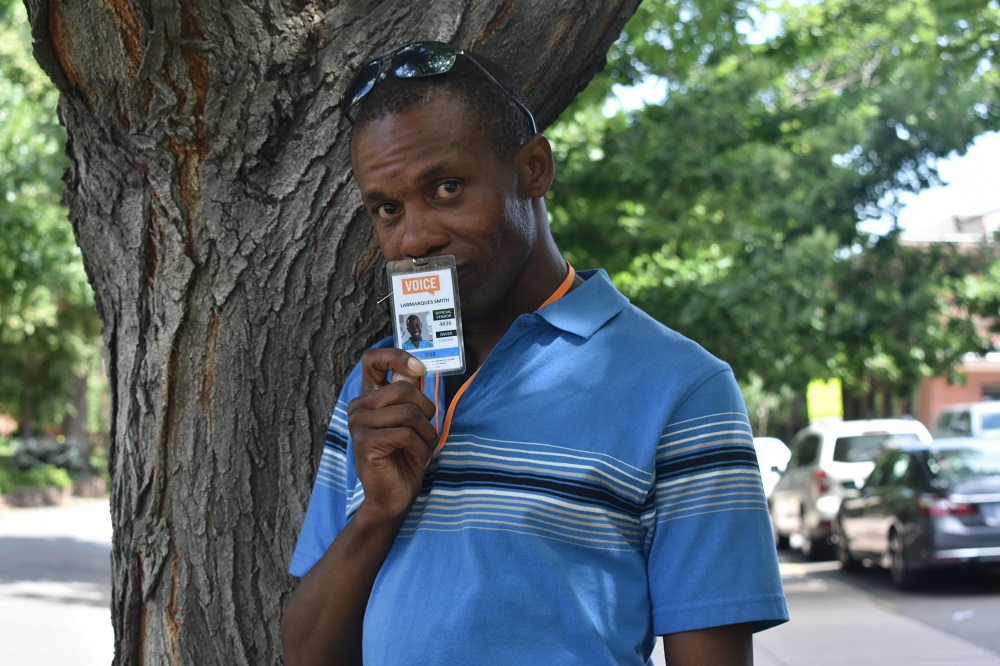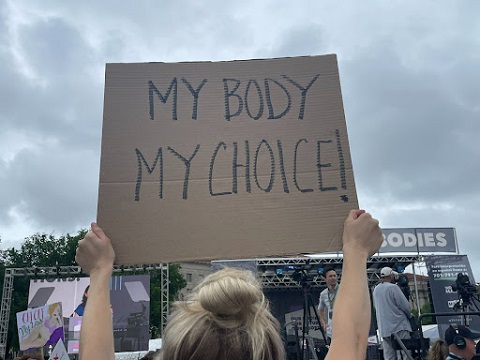By Sarah Ford, Denver Voice
Larmarques Smith came to Denver for a new start. He left behind his life in Indiana, including a career and family, because it hurt too much to stay.
“You don’t know that you’re going to lose the person that you fell in love with,” Lamarques says. “You don’t plan to lose them, but you choose them.”
The loss of his partner of eight years is what prompted Larmarques’ move to Colorado. Before moving, he dreamed of our state’s mountains and had a keen appreciation of Colorado’s approach to addressing the opioid misuse.
“I was really happy that Colorado had an access point,” he says, “because people really do need it.”
This is an issue that is always on Larmarques’ mind, as an overdose is what took his partner’s life. It was a sudden tragedy that shifted his whole world on its axis.
Larmarques tells me that he’d started to see behavioral changes in his partner, which put a rift between them. Larmarques had taken time off to visit his best friend. His partner began using during his absence – taking his first opioids hit on a Sunday. He was dead by the following Wednesday.
“I wish I hadn’t gone to visit my best friend, because I could have stopped him. Or gotten NARCAN to help him,” Larmarques laments. “Maybe he could still be here. So, I felt a little guilty about doing that. But I know myself and I needed some time away from him.”

His partner’s death will be three years ago next month. Afterwards, Larmarques found himself in a spiral of guilt and pain.
“I was so angry when he died, because I thought he just went out and blatantly did it. Without me knowing, trying to hide it from me,” Larmarques says. “I never went to talk to anybody. Because I was just so angry. I just went on with my day; I just went on with my life.”
Unable to bear staying in Indianapolis, he left everything behind, including his job as a Program Manager at the Damien Center, a resource center for people with HIV and AIDS.
This month marks Larmarques’ two-year anniversary of arriving in Colorado. However, living on the streets has made his fresh start a struggle.
“I had a career. I had friends. I had family,” he says. “But when you’re walking on the street and you look a certain way, or if you go into a courtroom, or anything where you don’t look the part, people judge you.”
Looking at him, few would ever guess that Larmarques is experiencing homelessness. He wears stylish, well-fitting clothes and walks with a confidence that betrays nothing of his situation.
But still, he has felt the pain of prejudice throughout the city.
“People never know what you have been through. People never know,” he says, his voice shaking. “I’ve walked this town in shoes and sandals, shorts and pants, and shirts and sunglasses and hats. And none of them knew that I came here because my partner died or that I had used the money he left me to move to start over.”
This is why he hopes to be the kind of person who can be there to support others, to listen to their story, and to be a resource. Because he’s seen the worst outcome of having nobody there.
“You just never know what people have gone through,” he says. “So, it’s really nice to talk to people the way you would like to be talked to. No matter what’s going on with them. Because they may need your help – or you may need theirs.”




















